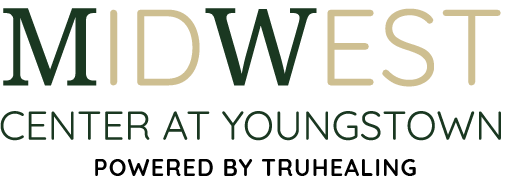The dangers of the current opioid epidemic are now becoming incontestably clear. New reports regarding chronic misuse and related overdoses appear in the headlines daily. More individuals die as a result of opioid abuse every year. Additionally, nearly a third of the patients prescribed these drugs, even by a licensed care provider, will ultimately misuse them. Although public recognition of these hazards is becoming more widespread, a generation of individuals still has dramatically compromised safety and happiness.
If you or a loved one is suffering from opioid dependence, seek help now before it is too late.
At Midwest Center at Youngstown, our opioid addiction treatment program in Ohio can help clients not only recover physically, psychologically, and emotionally from opioid use but unearth the true causes of their substance use to get their life back on track. Call us today at 844.544.0502 to learn more about the next steps in enrolling in our opioid rehab program.
How did the Current Opioid Epidemic Begin?
Although full accountability is still under debate, at least some of the problem appears to stem back to the 1990s. At this time, pharmaceutical companies assured the medical community that synthetic opioids such as oxycodone, fentanyl, or methadone did not present with the same addictive qualities as natural opiates like opium, morphine, or heroin. During this time, they became highly commonplace treatments for pain management, such as for individuals recovering from an injury or undergoing chemotherapy.
As the number of legal prescriptions rose, the number of subsequent addictions increased, and the number of opioid-related deaths has quadrupled since the end of the 20th century. Some of the reasons a medical prescription can turn into a substance use problem include:
- A prescription painkiller is taken too long, in too high a dose, or in combination with other drugs or alcohol
- Care providers rely entirely on pharmaceutical supports for routine pain management
- Upon limited access to prescription opioids, individuals begin to rely on illicit drugs such as heroin to obtain similar effects
Left untreated, individuals abusing opioids may damage personal relationships, neglect their friends or family, struggle at home or school, develop financial problems, become homeless or destitute, or even resort to criminal activity like stealing. They may also experience chronic medical complications such as dramatic changes in body weight, emotional dysregulation, heart and liver problems, increased risk of HIV and Hepatitis C, as well as accidental overdose and death.
How Is an Addiction to Opioids Treated?
Fortunately, the dangers of opioid use are now better understood, and treatment has become much more widely available. Individuals with an opioid dependence will often require a medically-supervised detox period. During this time, they will experience withdrawal symptoms such as:
- Insomnia and other sleep disturbances
- Digestive issues such as nausea, reduced appetite, and vomiting
- Profuse sweating, fever, and other flu-like symptoms
- Panic attacks
- Racing heart rate, pulse, and blood pressure
- Heightened respiration
Under 24/7 medical care, professional health care providers closely monitor vital signs. Here, individuals struggling with these symptoms can receive additional pharmaceutical supports to make them more comfortable.
After detox is complete, the real recovery process commences. This can involve several comprehensive therapeutic interventions such as individual and group counseling, nutrition and wellness education, and other more effective and sustainable pain management approaches.
Our Opioid Rehab Program at Midwest Center at Youngstown
The longer an individual suffers from opioid dependence, the more likely they will experience complications. This can include an increased potential for accidental overdose and death. At Midwest Center at Youngstown, we can support your healing through every stage of the process. Get the help you need and deserve today by calling our team at 844.544.0502 to end the cycle.

